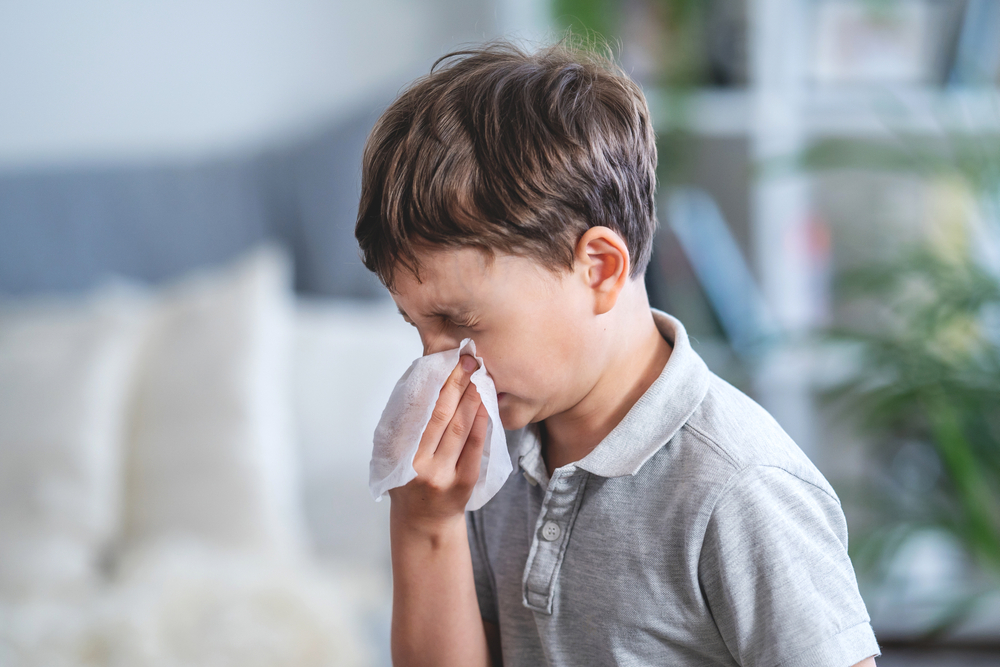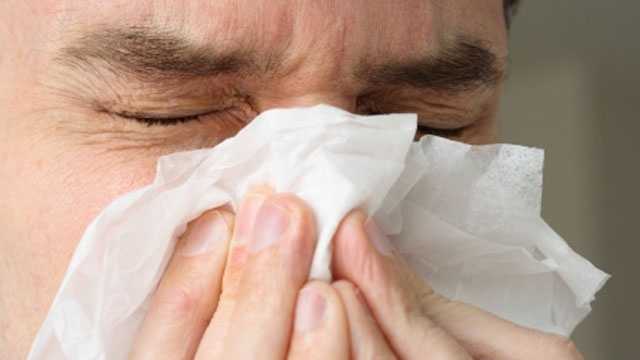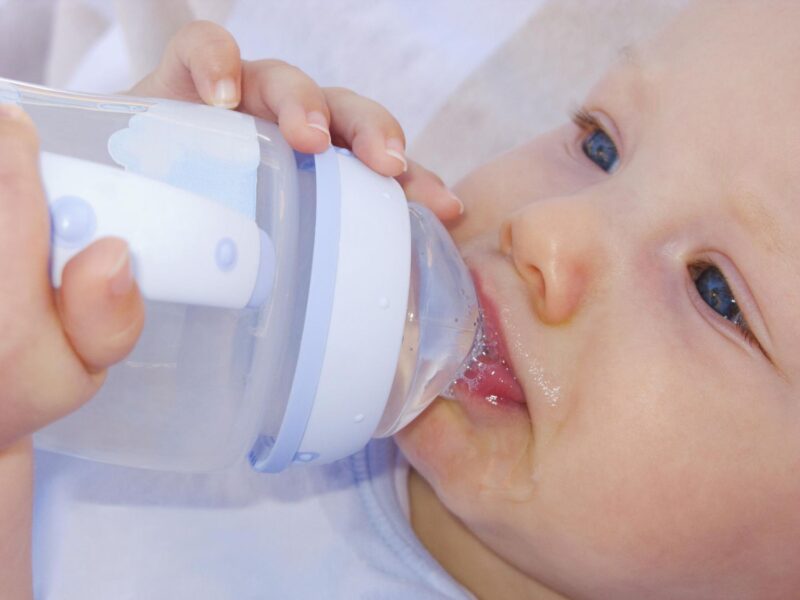Have you ever blown your nose and heard a funny squeaky sound in your ear? I have, and it surprised me!
It was a cold day, and I had a runny nose. I wanted to feel better, so I got a tissue and blew my nose. But instead of just clearing my nose, I heard a strange squeak in my ear! You might be wondering why this happens. Well, you’re not alone. Many people wonder about this too.
When you blow your nose, the ear squeaking happens because of your Eustachian tubes. These tubes connect your middle ear to your throat and help equalize air pressure. When you blow your nose with force, it can create a quick change in pressure between your middle ear and the outside world.
To balance this pressure, your Eustachian tubes open up briefly, and that’s when you hear the squeak. It’s like a tiny adjustment in your ear to keep everything in balance. This is usually harmless and goes away once the pressure is back to normal, but it can be a bit surprising when it happens!
Why Does It Happen to Some People?

Ear squeaking when blowing the nose can happen to some people more frequently than others due to various factors.
Anatomy of Eustachian Tubes
Eustachian tubes are not uniform among all individuals. They come in various sizes and shapes. Think of them as tiny, flexible tunnels connecting your middle ear to the back of your throat. When you blow your nose, these tubes open and close to balance the air pressure in your ears.
However, the size and shape of these tubes can vary from person to person. Individuals with narrower or differently shaped Eustachian tubes may find that these variations make their tubes more sensitive to pressure changes. It’s like having a unique lock that requires a slightly different key.
If your Eustachian tubes don’t match the standard shape or size, they might react more readily to the pressure changes caused by nose blowing, resulting in ear squeaks.
Allergies and Sinus Issues
Allergies and chronic sinus problems can lead to congestion in your nasal passages. This congestion can cause frequent nose blowing as individuals attempt to clear mucus and relieve discomfort.
Unfortunately, frequent nose blowing can disrupt the delicate balance of air pressure in the middle ear, especially for those with congested Eustachian tubes. Allergies can make these tubes more sensitive, almost like having a heightened alarm system.
So, when you blow your nose to clear congestion, your Eustachian tubes may react more strongly to the pressure changes, producing those ear squeaks.
The Mechanism Behind Ear Squeaks
The human ear is a complex sensory organ responsible for hearing and balance. It consists of three main parts: the outer ear, the middle ear, and the inner ear.
Sound waves enter the outer ear and travel through the ear canal, eventually reaching the eardrum in the middle ear. When sound waves hit the eardrum, they cause it to vibrate. These vibrations are then transmitted to the tiny bones in the middle ear, known as the ossicles (the hammer, anvil, and stirrup).
The ossicles amplify the vibrations and send them to the cochlea in the inner ear, where they are converted into electrical signals and sent to the brain for processing.
The Role of Eustachian Tubes
Eustachian tubes are narrow, tube-like structures that connect the middle ear to the back of the throat. They play a crucial role in maintaining the proper air pressure within the middle ear, which is necessary for normal hearing and balance.
When you swallow, yawn, or chew, these actions help open the Eustachian tubes briefly, allowing air to flow in or out of the middle ear to equalize the pressure. This process ensures that the pressure inside the ear matches the pressure outside, preventing discomfort and allowing the eardrum to vibrate freely for effective hearing.
Ear Squeaks When Blowing Your Nose
When you blow your nose, you’re essentially forcing air out of your nasal passages with some level of force. This can create a rapid change in air pressure in your nasal passages and throat. The air pressure inside your middle ear is ideally in balance with the external air pressure.
However, the sudden forceful exhalation during nose blowing can temporarily disrupt this balance. When the pressure inside your middle ear becomes different from the outside pressure, the Eustachian tubes may open briefly to equalize the pressure. It’s this momentary opening and adjustment that can produce the ear squeak.
The Eustachian tubes are sensitive to pressure changes. When the pressure inside your middle ear becomes imbalanced due to nose blowing, the Eustachian tubes respond by briefly opening.
This quick opening allows air to flow between the middle ear and the throat, equalizing the pressure. The rush of air and the movement of the Eustachian tubes during this process can create the distinctive squeak that you hear.
It’s almost like a tiny, automatic adjustment mechanism in your ear that helps maintain equilibrium.
How to Manage Ear Squeaks?
When you find yourself experiencing ear squeaks while blowing your nose, you might wonder if there’s anything you can do to minimize or prevent this peculiar phenomenon. While ear squeaks are generally harmless, they can be quite surprising and even slightly uncomfortable.
Gentle Nose Blowing
The force with which you blow your nose can impact the likelihood of ear squeaks. To minimize the pressure changes in your Eustachian tubes, try blowing your nose gently and gradually. Avoid forceful, rapid exhalations that can disrupt the ear’s pressure balance. Instead, blow your nose in a controlled manner to reduce the chances of squeaks.
Nasal Decongestants
Over-the-counter nasal decongestants can be helpful in relieving congestion in your nasal passages. By reducing congestion, you can potentially decrease the frequency of nose blowing. However, it’s essential to use these medications as directed and consult with a healthcare professional if you have any underlying medical conditions or concerns about their use.
Stay Hydrated
Staying well-hydrated can help keep your nasal passages moist and less prone to irritation. Adequate hydration can also prevent excessive mucus production, reducing the need for frequent nose blowing.
Allergy Management
If allergies are a contributing factor to your nasal congestion and frequent nose blowing, consider allergy management strategies. Consult with an allergist to identify your specific triggers and develop an appropriate treatment plan, which may include allergen avoidance measures and allergy medications.
Avoid Overuse of Tissues
Frequent nose blowing with rough or abrasive tissues can exacerbate irritation in your nasal passages and increase the chances of ear squeaks. Opt for soft, gentle tissues and avoid excessive rubbing or wiping.
Chew Gum or Yawn
If you find yourself in situations where you need to equalize ear pressure, such as during air travel or high-altitude changes, try chewing gum or yawning. These actions can help open your Eustachian tubes and relieve pressure.
Consult a Healthcare Professional
If you experience persistent or severe ear squeaks, or if they are accompanied by pain or discomfort, it’s essential to consult a healthcare professional or an ear specialist. These symptoms could be indicative of an underlying ear issue that requires attention.
In summary, while ear squeaks when blowing your nose are usually harmless, taking steps to manage and minimize them can improve your comfort. By adopting gentle nose-blowing techniques, using nasal decongestants as needed, staying hydrated, and addressing allergies, you can reduce the chances of ear squeaks interfering with your daily routine. If you have concerns about persistent or severe ear squeaks, don’t hesitate to seek medical advice for a thorough evaluation.
Should You Be Concerned?

You might be wondering whether you should be concerned about ear squeaks when blowing your nose. In most cases, these ear squeaks are harmless and temporary. They occur due to the rapid pressure change in your Eustachian tubes and typically resolve once the pressure equalizes.
However, there are certain situations where ear squeaks may warrant medical attention or further consideration
Persistent Ear Squeaks: If you experience ear squeaks regularly, even outside of nose blowing or if they occur frequently and don’t seem to improve over time, it’s a good idea to consult an ear specialist or healthcare professional. Persistent ear squeaks could be a sign of an underlying issue that requires evaluation and treatment.
Pain or Discomfort: If you notice any pain, discomfort, or unusual sensations accompanying the ear squeaks, it’s essential to seek medical attention. These symptoms may be indicative of an ear problem that needs assessment and potential treatment.
Hearing Changes: If you notice changes in your hearing, such as reduced hearing capacity or persistent ringing in the ears (tinnitus) associated with ear squeaks, it’s crucial to consult a healthcare professional. These changes could be related to underlying ear conditions that require diagnosis and management.
In summary, while ear squeaks during nose blowing are typically harmless and resolve on their own, you should be cautious and seek medical advice if you experience persistent or severe ear squeaks, pain, discomfort, or any changes in your hearing. I
It’s always better to have any unusual or concerning symptoms evaluated by a healthcare professional to ensure your ear health and overall well-being.
FAQ
Can I damage my ear by blowing your nose?
Blowing your nose gently is unlikely to cause ear damage. However, forceful blowing can potentially harm your ears, so it’s best to do it gently.
How do I know if my eustachian tube is blocked?
Symptoms of a blocked eustachian tube can include ear pressure, hearing loss, and discomfort. Consult a healthcare professional for a proper diagnosis.
How do you clear a blocked Eustachian tube?
Methods to clear a blocked eustachian tube include swallowing, yawning, or trying the Valsalva maneuver, which involves gently blowing while pinching your nostrils closed.
How do I unclog my eustachian tube?
To unclog your eustachian tube, try techniques like swallowing, chewing gum, or using a warm compress on the affected ear. These can help relieve pressure and promote tube opening.
How do you clear squeaky ears?
Squeaky ears can be related to earwax or pressure changes. Try over-the-counter ear drops for earwax or the Valsalva maneuver for pressure equalization.
Why is my ear squeaking and crackling?
Ear squeaking and crackling can be due to various factors, including earwax buildup, sinus issues, or Eustachian tube dysfunction. Consult a healthcare professional for a diagnosis.
How do you massage an Eustachian tube to drain?
Gently massaging the area around your ear and jawline can sometimes help promote Eustachian tube drainage. Be cautious and avoid applying excessive pressure.
How can I clear my eustachian tube naturally?
Natural methods to clear your eustachian tube include staying hydrated, using a humidifier, and practicing the Valsalva maneuver. These can help alleviate blockages.
How can I force my eustachian tube to open?
You can try the Valsalva maneuver, which involves gently blowing while pinching your nostrils closed. This can help equalize pressure and open the eustachian tube.
Can eustachian tube dysfunction be cured?
Eustachian tube dysfunction can often be managed and improved with home remedies or medical treatments. In many cases, it can be effectively treated, but it’s essential to consult a healthcare professional for guidance on your specific condition.
Final words
The mysterious phenomenon of ear squeaks when blowing your nose, though surprising, is usually harmless.
However, these squeaks occur due to pressure changes in the Eustachian tubes, which connect your ears to your throat. While not everyone experiences them, they can be more frequent for some due to variations in Eustachian tube anatomy or issues like allergies and congestion.
The good news is that for most people, ear squeaks are temporary and can be managed with simple steps like gentle nose blowing, staying hydrated, and using saline rinses. Remember, it’s always important to seek medical advice if you experience persistent discomfort, pain, or hearing changes related to ear squeaks.
So, the next time your ear squeaks while you blow your nose, don’t fret. It’s just your body’s way of maintaining balance. And with these insights and remedies, you can face this quirky occurrence with confidence, knowing that it’s typically nothing to worry about.



